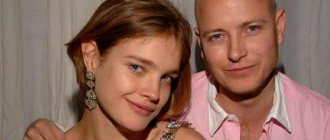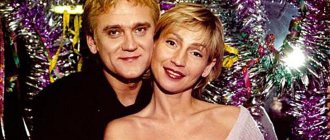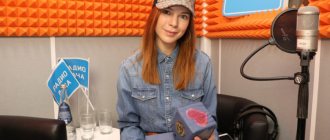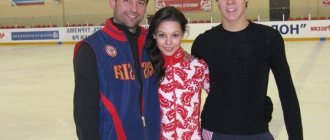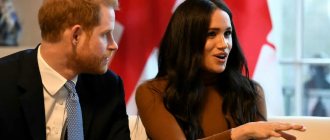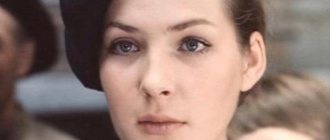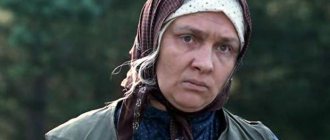Moscow schoolchildren were told how to accept a peer with special needs into their circle
An open lesson was held at the capital's gymnasium, organized by the Naked Heart and the Russian UN Office. This time we talked with the children about inclusion - about why education is important for any child, and how the children themselves can help a classmate with a disability.
“The Biggest Lesson in the World” this year was held in the famous Moscow gymnasium named after Kaptsov No. 1520 on Leontyevsky Lane - in the fourth grade “A”. Russia is among more than 100 countries in which the “Biggest Lesson” is taking place simultaneously. On this day, more than 500 million schoolchildren discuss the issues that are the most important and painful for each country. We have this lesson - dedicated to the value and accessibility of education - held with the support of the Ministry of Education and Science of the Russian Federation, as well as the Naked Heart Foundation for helping children.
It was known in advance that the school was preparing for this event. Before a strange and sad story happened with a girl Masha with Down syndrome, whom fourth-graders from one of the Moscow schools and their parents survived both from school and from the school photo album. After this story, which happened recently, Natalia Vodianova , founder of the Naked Heart Foundation, called on all parents of children with special needs, especially famous people, to publish photographs of themselves with their children in order to support Masha and special children like her.
Even earlier, a loud incident happened with Natasha’s sister Oksana, who was no longer even a schoolgirl (Oksana is 27 years old), but also experienced public condemnation and humiliation when they tried to kick the girl out of the cafe.
These cases served as new impetus for an important discussion in society about the place of a person with a disability in it and about our tolerance. And the open lesson about inclusive education, as fate would have it, became a continuation of this important public conversation.
Adult tasks and children's tasks
Deputy Minister of Education and Science of Russia Veniamin Kaganov, in his address to children, invited them to think about what they, their yard, street and planet will be like in 10-20 years. An educational cartoon shown to children was also dedicated to this. This animated film demonstrated to the children the global goals that we would like to achieve by 2030.
And among these goals (there are 17) are to end global poverty, end hunger, achieve food security and improved nutrition, achieve gender equality, and promote the sustainable use of ecosystems. The UN and the entire planet have many more goals, and one of them is to promote equal opportunities for quality education throughout life, and to promote the creation of a peaceful and inclusive society for sustainable development.
“But you will have to achieve these goals,” class teacher Svetlana Zhuzhlikova , “when you finish school, you will receive an education.” But now the main task of these boys and girls is study. Why do you need to study? “To become smart,” “Only by getting an education can we change this world,” the guys answer, and they also say what they want to become - a ballerina, an architect, a doctor...
What is a “school for everyone”
But, the teacher reminds, not everyone in the world can get a quality education: “Some children in the world cannot go to school at all.” Why? “They live where there is no school at all”; “Parents do not have such an opportunity,” the schoolchildren put forward versions. Fourth-grader Timur Kurbanov comes to the board and uses specific figures (the children were preparing for this joint discussion): “In Africa, about 35 million children do not receive primary education - this is almost every fifth child on the continent. In poor countries, children are either forced to work to feed their families, or education is paid and there is no money for it. In countries like Afghanistan, Iraq or Syria, the number of children out of school is 45-50 percent due to continuous civil wars.” In Europe, Timur notes, 95-98 percent of children can study.
Timur Kurbatov uses numbers
And in Russia, 5 percent of children cannot go to school - these are the statistics. But why? Children are savvy in this matter: they immediately think of children with special needs, because otherwise education is free and accessible for everyone. “In Moscow alone there are 30 thousand children with disabilities,” Svetlana Zhuzhlikova cites data from the Center for Curative Pedagogy.
School teaches you a lot. But besides knowledge, it gives something else. “Friends”, “Communication”, “Interesting games” - the students confirm. It is for this, and not just for knowledge, that any child goes to school – both healthy and with special needs. “Education where children study together is called inclusive” - this is what a “school of equal opportunities” is, we jointly conclude.
In this gymnasium, the children know what children with disabilities are. For example, in one of the previous lessons, the class met – in absentia, through a video recording – with Janette Bazarova, a girl in a wheelchair. Schoolchildren also know what other special features a child may have - Down syndrome, cerebral palsy, autism, poor vision or hearing. The topic does not cause indifference, aggression or rejection among fourth-graders - it is clear that it is interesting to discuss this problem. When asked by the teacher if they would like Jeanette to study in their class, everyone confidently shouts “Yes!” in unison and nods.
“So that they believe in themselves!”, “Give support”, “Play together” - this is what students would like to do together with classmates with disabilities.
The gymnasium annually hosts “Weeks of Kindness”; the school is friends with the Murom Rehabilitation Center for children and adolescents with disabilities. “The reason for the problems of a person with disabilities is not his abilities, but the limitations with which he is surrounded,” the teacher emphasizes, and the children agree. How to remove such “barriers-restrictions”? Make friends, support, give warmth - say Masha, Timur, Sasha. And the school needs special lifting ramps, special toilets, wide doors for wheelchair access - the kids also know about this.
Natalya Mikhailovna Vodianova model, actress
Natalia Vodianova was born on February 28, 1982 in the city of Gorky. Her father's name is Mikhail Vodyanov, her mother's name is Larisa Gromova. The family lived poorly. Her parents separated when Natalya was very young; she hardly knew her father, and her mother was forced to raise three daughters alone: Natalya and her two younger sisters, Oksana and Kristina. The situation was complicated by the fact that Oksana was born with serious illnesses - autism and cerebral palsy.
In order to somehow improve her poor financial situation, like the eldest of her sisters, Natalya Vodianova went to work at the age of 11 - she helped her mother sell fruit at the market. This took away time from studying at school, so Natalya’s grades were poor.
It cannot be said that the situation has somehow changed for the better. When Natalya was only 15 years old, she and her friend moved into a rented apartment to start living on their own. When she was 16, a friend brought Natalya to the Nizhny Novgorod modeling agency of Evgenia Chkalova “Evgenia”, where she was given a strong recommendation to learn English properly. Once, at one of the screenings, the young model was noticed by a scout from the French agency Viva Model Management and invited to Moscow for a casting. Natasha went to the capital and was selected for the Madison agency competition in Paris.
In 1999, in the French capital, the outstanding fashion designer Jean-Paul Gaultier was part of the competition jury. The master saw enormous potential in young Vodianova. Natalya took second place in the competition, and Gauthier immediately made her a job offer.
Soon Natalya was invited to a photo shoot for the German glossy Elle, then she got a job at Fashion Week in New York. It was a great start, and then everything went as usual: Vodianova began to receive lucrative offers, she appeared in the shows of Calvin Klein, Gucci and Ives Saint-Laurent, plus she starred for famous publications Vogue and Harper's Bazaar.
As for New York Fashion Week in 2002, Vodianova was literally “torn to pieces” - there she worked for nineteen designers at the same time.
In 2003, Vodianova began collaborating with the Calvin Klein brand; as part of this contract, the young star became the highest paid person at the label in its entire history. In the same year, Natalya opened and closed catwalk shows of items from the prestigious fashion house Ives Saint-Laurent. Vodianova was also famous in Russia; she starred in advertisements for L'Oreal Paris products.
In 2004, the model posed for the legendary Pirelli calendar, which was an incredible recognition of her talent, since only a select few beauties were featured there. This event rightfully cemented Vodianova among the elite of the modeling business.
In 2008, Natalia Vodianova decided to quit her modeling career. She wanted to devote her time to raising children and doing charity work. Her last “career” show was Haute Couture Valentino. But, of course, she had no intention of leaving completely. In the same year, she became the face of the Etam lingerie company. She still acts and appears on the podium now, but in the status of a guest star and for special fees.
As for Natalya’s personal life, at one of the private parties in Paris she met 33-year-old art collector and artist Justin Trevor Berkeley Portman. This was not a simple “man of art”, but a real British aristocrat, the son of Viscount Edward Portman.
In 2001, Vodianova went to Africa for a photo shoot, and Portman decided to accompany her. The three of them returned back - Natalya was expecting a child. As the model herself recalls, she decided to give birth without pain relief in order to feel everything and live with her first-born. Justin, at the time of the birth, which took place in London, was next to his lover and held her hand. The couple had a son, Lucas. Pregnancy had virtually no effect on the model’s figure, and just 1.5 months after giving birth, Vodianova returned to work.
On September 1, 2002, after the birth of the child, Natalya and Justin got married, and they got married in St. Petersburg. On March 24, 2006, Vodianova gave birth to her second child, daughter Neva. The baby was named after the river, but the emphasis was placed on the first syllable. A year later, the couple had a second son, Victor.
A few years later, rumors spread in the media that not everything was going smoothly in the Vodianova family; there was even information that the model was cheating on her husband. In mid-2011, the discord in the relationship was confirmed - Natalya officially announced that she no longer lived with her husband. The couple soon divorced. At the end of 2020, Justin Portman said that the cause of the discord in their family was his alcohol addiction. He tried to undergo treatment, but it did not save the marriage.
“Sharks of the pen” began to make assumptions that Vodianova is having an affair with Andrei Boltenko, the director of Channel One, who staged the Eurovision 2009 competition, held in the Russian capital. Natalya was one of the presenters there. However, in the summer of 2011, the world learned that Vodianova was dating businessman and heir to a billion-dollar fortune, Antoine Arnault. It is noteworthy that before this novel, they had known each other for 4 years. On May 2, 2014, Natalya gave birth to her fourth child, this time from Antoine - son Maxim. The couple has not yet officially registered their marriage. At the beginning of 2020, it became known that Natalia Vodianova was expecting her fifth child. On June 4, son Roman was born.
In 2004, the model, together with her husband Justin Portman, created the Naked Heart Foundation, the purpose of which was to help children in Russia and other countries. The foundation's logo was drawn by the artist husband himself. The money was raised through a charity evening in New York, sponsored by L'Oreal Paris. An auction was held where Mick Jagger's autographed guitar went under the hammer; other lots included tickets to a fashion show, as well as a “dinner with a supermodel.” They managed to collect about $400,000, and Vodianova herself added another $70,000. The fund is replenished through similar promotions and events.
The initial goal of Naked Hearts was to build 500 playgrounds in Russian cities, mainly in the territories of orphanages, hospitals and boarding schools. Later the program “Every child deserves a family” was added. Within its framework, the foundation is trying to reduce the number of parents abandoning children with congenital developmental disorders. Under the auspices of the project, special centers are being created that provide social, psychological and legal support to families with disabled children, and part of the funds are transferred to them directly.
In the spring of 2020, Vodianova presented her new charity project, “Fashion with Meaning.” She created a clothing collection for the Zarina retail chain, where images of “special” children were used as drawings.
In addition to modeling and charity, Natalia Vodianova managed to prove herself as an actress and TV presenter. In 2009, she became one of the hosts of Eurovision in Moscow. In the film “Clash of the Titans,” released in 2010, Vodianova’s appearance was used to create the Gorgon’s face. In 2012, Natalya played the main role in the film “Lovers”. In 2013, the model assisted Dmitry Nagiyev on the show “The Voice. Children" as co-host. In 2014, she took part in the opening of the Olympic Games in Sochi, and also hosted the draw ceremony for the qualifying tournament for the 2020 FIFA World Cup.
In the summer of 2020, the public was shocked by a scandalous incident when Vodianova’s younger sister Oksana, who has autism and cerebral palsy, and her nanny were kicked out of a cafe in Nizhny Novgorod because she allegedly scared away visitors. The story received a wide public response, and as a result, the Flamingo cafe, where the incident occurred, was closed. Also, a criminal case was opened against 47-year-old cafe cook Akhmidiya Ginyaz Ogly Bayromov under the article “Actions aimed at humiliating human dignity.” In the fall of 2020, it was announced that the offenders, represented by the cook and the owner of the establishment, apologized and sincerely repented of what happened. A petition was sent to the court to terminate the criminal case in connection with the reconciliation of the parties, after which the litigation was terminated.
Inclusion
The children were also reminded of the importance of a tolerant approach towards a person with a disability. “It’s better not to remind him that he’s sick,” Natasha suggests. All together we conclude that it is better to talk about a blind person as a person “with visual impairment,” for example, and so on. “The person and personality are primary, and the diagnosis or developmental feature is secondary,” the teacher notes.
And there are also rules for communicating with such guys. For example, in the company of a classmate who is hard of hearing, you need to speak while looking into his eyes. “You need to speak clearly and loudly,” says Natasha. “You need to know sign language!” - the guys say. “They can read lips!” - Sasha knows.
The guys also talked about what the name of the Naked Heart Foundation, which participated in organizing today’s lesson, means. What are "naked hearts"? One of the schoolchildren suggested that they were “defenseless,” but another version appeared - “hearts open to everyone.”
The finale of the lesson was a video performance by Natalia Vodianova, founder of the Naked Heart Foundation, in front of the children. “I'm glad that we can talk to you about what inclusion is. The word means “to include,” so an inclusive school is a place for everyone. And excellent students, and those who cannot keep up with them, and children who have difficulty hearing or seeing, or move in a wheelchair. After all, we are all different,” says Natalia Vodianova. – I have a younger sister Oksana. She has autism. She doesn't speak at all, but communicates well. And I also had to learn her language.” Natalya reminded the children that sometimes ordinary speech is not suitable for communication - but gestures or pictograms are needed, and these methods of communication also deserve respect. “It’s just important for all of us to spend time together. Study together, go to the movies and for walks, and just help each other. The more time we spend together, the more we will understand each other,” says Natalya Vodianova. “Remember, I said that “inclusion” comes from the word “to include,” says the founder of the Naked Heart Foundation. “You need to include these guys in your circle of friends.”
Natalia Vodianova and Polina Kitsenko: “Every person should have their own mission”
On Polina: turtleneck made of cupro, silk and polyamide, Louis Vuitton; leather skirt, Carven, Rehabshop. On Natalia: dress made of viscose, cotton and elastane, Sportmax
Photo: Vladimir Vasilchikov. Style: Alisa Zhidkova. Interview: Denis Merezhkovsky
GRAZIA: The incredible atmosphere at the Green Marathon “Running Hearts” is noted even by those for whom arriving early in the morning and running the distance is a feat. Is the organization of this event as cloudless and happy?
Natalia Vodianova: I can say for sure that everything is not so simple. Once what you want comes true and works out, there are moments of euphoria. It's both fun and cool. But basically you have a lot of disappointments - in someone, in something. The process is like hammering on a wall: in the end, you either break through it or you don’t. This is a very serious work of more than one person. And there's not much funny in it. I'm sure Polina is ready to add a lot to my words.
Polina Kitsenko: It’s like childbirth here. The woman suffers and claims that she will never do it again. And then he says “I want more.” It's complicated. There are ups and downs, there are moments of despair, there are moments when something doesn’t work out and you need to look for a way out. It's just that an optimist never gives up. Is this door closed? Let's go to another one. Are all the doors closed? Let's climb out the window. Is the window closed? Let's get through the window or tear down the wall with a truck. And sometimes you want to sit on the curb, stretch your legs and think - how can we take this fortress? But there can be no such thing as turning around and leaving. Giving up is wrong.
GRAZIA: And the result is obvious! This year we started on Vasilyevsky Spusk. How did you do it?
N.V.: We are moving on, opening new horizons for ourselves. There were a lot of approvals, until the last moment Polina had to sort it all out and organize it all. Of course, we supported her wherever needed, but I didn’t doubt her or her team for a second.
P.K.: Natalya and I always dreamed about this. In this case, it took 13 months to get to Vasilievsky Spusk and end up at the Kremlin walls. The first negotiations began in April 2020, when the last race had not yet taken place.
Natalia is wearing: Leather dress, Dior
GRAZIA: This time, thanks to the Green Marathon “Running Hearts”, more than 40.5 million rubles were collected. A lot of money. At the same time, the event itself is incredibly expensive. How did you manage to come up with a formula in which neither the participants nor the beneficiaries of the Naked Heart Foundation, for whom all this is being done, feel disadvantaged?
P.K.: We are nothing without our friends. Among them were a huge number of people who helped us grow the project at different stages. Plus, we always have artists perform for free, secular photographers and presenters work - they all give us their work.
N.V.: I believe that charity is not something that you necessarily do with anguish, saving terribly everywhere so that all the money goes to the cause. And, of course, we save on everything. But not in public. Otherwise, we will lose them, because for many of them professionalism and comfort are important - it’s just part of their life. They may choose to stay home and help in other ways. Therefore, we always try to do everything at the highest level. And our concept of saving is that we need to get as many free services as possible from the most worthy partners: catering, some services... For them it’s not so difficult, they can afford not to make money on it for one day, but for us it’s huge cost savings.
P.K.: From the first day, we set ourselves the task of doing more than just a charity run. Now we’ll blow up the balloons, run away, make ourselves known, and everyone will have a great time. This is wrong. We wanted our team, first of all, to create a high-quality athletics race, organized according to all the latest world standards: in terms of order, management of crowds, service for runners, and quality of the track. Everything that creates comfort and pleasure for the participants.
GRAZIA: The Naked Heart Foundation organizes events all over the world. Where are the most responsive people today?
N.V.: In our country. And this is normal, since we spend all the funds raised in Russia. Here today is our main support, no matter what.
On Polina: jacket and skirt made of cotton and silk - all Louis Vuitton
GRAZIA: Do you think people want to help by nature or do they need to be pushed towards this, including through various events - fairs, marathons, auctions?
N.V.: It is very pleasant for a person to give when he understands that at the same time he is acquiring something interesting for himself. A kind of “reward for work”: a unique experience or something from the world of fashion... Something that makes it even cooler. I even had this inner conviction: today a person cannot be called “good” if he is not cool. I really believe in this and believe that now, if you don’t have some kind of mission, then you are no longer cool. It must be there, and you should follow it and be active. These are new standards in society. Good is the new cool.
GRAZIA: Do you think that’s why so many respected famous people “run with meaning” with you every year?
P.K.: Indeed, today we no longer need to explain where we are calling them - everyone is waiting and coming themselves. And here we, of course, feel responsibility and pride: we were able to make our great contribution to instilling this culture and fashion for it. Of course, the ultimate goal is to raise funds. But it is also important to give the city and people an event that they would look forward to, that would strengthen their spirit and teach not only the culture of a healthy lifestyle, but also that through it you can help those who need it. Many people think that charity is for wealthy people and that they cannot afford it. And she is at arm's length, taken from the shelf of sneakers. Or someone wants to help, but doesn’t know where, to whom and how. So, our project demonstrates the culture of the most accessible charity and the simplest help to people: run and help. Run with purpose.
GRAZIA: What turned out to be the turning point when it became clear that the race had become a massive success?
P.K.: Concluding a partnership agreement with Sberbank last year, when they entrusted us with managing the Moscow start of their Green Marathon, which united our running projects. This is a huge honor and we were delighted to have such a strong senior partner who shares our values around healthy living and running with purpose. We doubled down, combined our expertise and took our race to the next level.
N.V.: Sberbank is not only a financial and social institution, but also a very sports corporation, and also significant in the field of patronage. German Gref is our inspirer, visionary and supporter in the constant development of our charity race. He proves that business can also be meaningful. Also this time, athletes from Qatar came to us as part of the cross Year of Culture between Qatar and Russia, and the Ambassador of Qatar to Russia, Fahad Mohamed Al-Attiya, took part in the race. We have planned a large number of joint projects, because our countries share common values, one of which is the creation of the most favorable conditions for the development of human potential. Charity plays a vital role in both Russia and Qatar, so joint projects will become a platform for fruitful cooperation and the establishment of new connections between individuals, foundations and organizations on an ongoing basis.
Natalia is wearing: leather dress, Dior
GRAZIA: How do you divide your responsibilities among yourself?
N.V.: Polina has been running with us for a long time - since the second half marathon in Paris. And once, about five years ago, we sat down to drink tea, and I told her about my idea to bring charity running to Russia.
P.K.: Then Natasha asked me if I would like to do such a project. I happily took on the barbell of this task, put it on my shoulders and began to gradually lift it.
N.V.: When we came up with “Running Hearts,” Polina became our co-founder. The first year we ran in Gorky Park, there was a very limited number of people - one and a half thousand. Even then we understood that there was much more interest in the event, and therefore we were looking for a site that could accommodate everyone. And when we reached an agreement with Moscow State University, 10 thousand people joined us. Polina organized this race at such a level that it became a strong brand. P.K.: It is clear that the organizational, creative and performing parts rest on the shoulders of me and my team, but there are a huge number of aspects when we would not be able to do anything without the maximum involvement of Natalia and her team. The most important decisions, meetings... They are always next to me. They connect day and night and arrive when needed! For a day or at least half a day. In frantic mode. And you know, it’s so cool when you always know who you can call, who you can ask. And Natalya is the kind of person who will definitely fulfill her personal maximum. And together we will achieve our goal.
GRAZIA: You both talk about optimism very often. Does this quality never go through crises for you?
P.K.: No, my glass is always half full.
N.V.: In my life, I have always had faith in the best. And in the most difficult times. When you are a child and forced to exist in a very difficult life situation... “Optimism” is not even the right word. You just have no choice but to move forward and live with what you have. And children always find ways: they look for something beautiful, kind and quickly forget insults and sorrows. After all, the less you have, the more you value the tiniest little thing. I have interesting memories from that time, and they all involve some unique food I tried. First bubblegum, first Fanta, first Twix. I remember these moments so vividly, some of them are very, very bitter, but overall they are small joys in life that you carry throughout your life. Now you’re thinking about it, and you can’t even believe it. I wonder how you can pass this on to your children?
GRAZIA: And what could become the subject of such happiness for them today?
N.V.: Time spent together. Trips where we experience new emotions. When Maxim was born, I took Neva and Victor to Venice for two days. I had been there many times, but they saw the city for the first time. These two days were so bright for us! Or recently Victor and I went to Milan to meet Donatella Versace. It was great. We were always eating something delicious, looking at beautiful architecture, having fun and just spending time with each other. Unfortunately or fortunately, I am a very busy person. Therefore, the most important thing for children is these moments when we are together.
GRAZIA: How can we convey to them this very desire to help others?
P.K.: My children are with me at all charity events. I don't force them. This is already the norm. When you are passionate about something, your children automatically absorb it. In general, where you sow, it will grow. And if you sow these sprouts around you all the time, then they will sprout in the same place as your children.
N.V.: And this is very important. Plus, there is no need to be afraid to show them so-called horrors. For example, once Lukas, Neva and Victor went with me to orphanages in Russia. This has a strong impact on the psyche, and personally I think in a positive way. There is no need to be afraid of hurting your child in this way. I didn’t tell them about the dark realities of these children - they saw everything for themselves, there was no need to say anything. Of course, this is scary for a child; he probably puts himself in the place of those kids. But this is how empathy develops: when you see and understand that even the most helpless can be in trouble. Then it is forgotten on a conscious level. Now, if I ask the younger ones if they remember, it will probably turn out to be very bad. But in the subconscious, what is seen remains and simply makes a person more humane. I know it. Sometimes I look at my children and see how they become good people.
Hair: Konstantin Kochegov.
Makeup: Natalya Vlasova@MOSMAKE.
Photographer's assistant: Vasily Patrakov.
Stylist assistants: Victoria Kazaryan, Daria Matvienko.
Makeup artist assistant: Anna Zvyagintseva@MOSMAKE.
Producer: Ulyana Kalsina.
DID YOU LIKE THE ARTICLE? Subscribe to Grazia's best content newsletter
Thank you!
We have sent a confirmation email to your email.
Parents' opinion
“I would be glad if a child with special needs studied in our class,” Timur Kurbanov, a student of grade 4 “A,” admits in a conversation with me. “I haven’t interacted with these guys before, but it would be great to have that experience.” Timur says that he would also like to learn sign language with interest, so that he would be able to talk with children who are hard of hearing: “I’m ready for this.”
“There is a meaning to such lessons - after all, everything good is ingrained in children from childhood. This will not pass without a trace, that’s for sure,” says Timur’s mother Lyudmila Smirnova. “Rather, this lesson is more necessary for us, parents.” Lyudmila admits that she herself, personally, is ready for a child with a disability to study in her son’s class. But it's not that simple. The building, the classroom, the children, and the adults need to be prepared for this. First of all, the state should pay attention to this, my mother is convinced. “Ideal people are dolls on store shelves. And we are all imperfect. And the more we understand that we are different, the better it will be for everyone.”
Lyudmila recalls that in our childhood we did not have much opportunity to contact special children. We did not see disabled people in school classes, and very rarely on the streets. “If they studied at all, it was in special places. Modern globalization is all about us being ready. And so that our children are not surprised when they meet such a person. It's not his fault. And if we instill this approach in our children from childhood, it will be right,” says Lyudmila Smirnova. Yes, the problem cannot be solved with one loud lesson. But if there are many lessons, if they are frequent, if children get used to the idea of inclusion and equality and are ready to communicate with peers with special needs, the task will be completed, parents believe.
Natalia Vodianova: Poverty is my richest experience
Natalia Vodianova to Moscow for shows and social events: for the eighth time, the supermodel and her team from the Naked Heart Foundation are holding the “Every Child Deserves a Family” forum. On this platform, experts share their experience with parents of children who have been diagnosed with autism, Down syndrome, cerebral palsy or other forms of mental and physical disabilities. To help children with these diagnoses, the foundation brings the best foreign specialists and effective assistance programs to Russia, organizes lectures and master classes... Why is she doing this and how does it affect her children (Natalia has five), the supermodel said on Radio “ TVNZ".
"With outstretched hand"
- Natalya, do you have any thoughts of quitting it all? Doing charity work must be very difficult.
- Yes, every day I feel like I’m walking around with my hand outstretched and asking people for something they don’t need at all. In their minds, they are helping not special children, but me, because we have some joint projects or it is inconvenient to refuse.
Natalya Vodnyaova: By selling ice cream, I made money with body kits. Natalia Vodianova talks to Alena Martynova and Mikhail Antonov about charity, poverty, family and raising children. FULL VERSION Did you like the video? Subscribe to our channel so you don't miss new episodes!
— Aren’t you afraid to turn into Brigitte Bardot? They love her, but everyone knows that now she will come and again talk about her animals. It’s the same with Vodianova: wherever you call, she’s talking about her foundation again...
- Good question! It seems to me that I am already Brigitte Bardot, and everyone is afraid of me! But I am pleased to do an important and useful thing. For example, we recently had an audit of how the foundation spends the funds that are donated to us, and how effectively our projects for society are being implemented. And imagine, every ruble spent on us brings three rubles to society! Thanks to our support, stay-at-home mothers get jobs, their quality of life and level of happiness increases.
— What about public opinion? You can teach parents, you can build playgrounds for children with disabilities, install ramps - but special children will still be offended...
“We don’t understand the behavior of such people.” But every day, 1 in 59 children is born with autism, this is the latest world statistics. I try to explain what autism is so that even children can understand it. Take an ordinary child: he learns by copying his parent. But a child with autism does not perceive a human face; he is more interested in pictures and textures. Therefore, such a child cannot learn from others; he has no social framework. This is hard for many to understand because we are used to being part of society. And that’s why, for example, my children can’t stand that I’m some kind of supermodel. Everyone's mother is like a mother, and they have a famous one, whom everyone knows, about whom everyone asks, from whom everyone expects her to be dressed from head to toe in Gucci or Louis Vuitton.
The Vodianova sisters with their mother in an inclusive camp (2013). From left to right: Oksana, Natalya, Kristina, Larisa Viktorovna. Photo: Personal archive
Pies for sale
— For you, helping special children is largely a personal story because of your younger sister’s diagnosis (Oksana has cerebral palsy and a severe form of autism. — Ed.). How has it changed thanks to your support?
“When I first started this work, I could not even imagine that it would affect my family so much. After all, Oksana was already 24 years old at that time. But our specialists said: “Natasha, why don’t you invite her to the family support center that the foundation has opened?” And this completely changed the lives of Oksana and my mother. My sister not only gained new skills and independence, but also friends; she is now being looked after by another boy. She loved dresses, braiding her hair, and uses the communication board well, meaning she can communicate with others, although she does not use speech. When you have been told all your life that a person is a “vegetable”, and then suddenly you see real progress, these are such emotions that you simply cannot convey... I always think: what would have happened if we had started earlier, when Oksana was still a child?
— You have had to explain more than once why you live in Paris, and your sister and mother live in Nizhny Novgorod. And five years ago, when your mother was noticed on the street selling homemade pies, a scandal broke out: they say that the daughter earns millions, and the mother is forced to sell homemade baked goods. Does your fame prevent your family from living a normal life?
— My mother still bakes pies. Very tasty: if you’re in Nizhny Novgorod, be sure to try it! Over the years, she has proven to everyone her independence. She had a very difficult time: when Oksana was born, her entire family, friends, and entourage turned away from her mother. And only in recent years has she turned from an outcast into a confident woman, entrepreneur and mother of Natalia Vodianova.
I love her very much and have offered to move her more than once. But mom feels good in Nizhny. Not everyone needs Paris and its opportunities. Another of my younger sister, Kristina, who studied abroad since she was 12, has now returned to Russia. Works in St. Petersburg as a restorer and art historian. I am very proud of her, just as my mother is proud of all three of her daughters.
The model's common-law husband is French businessman Antoine Arnault. Photo: Nick DUNAEVSKY
She made money by weighing down customers.
— You lived in modest prosperity for the first half of your life...
— Let's call a spade a spade: I lived half my life in poverty.
- Okay, then another half of my life - as one of the richest and most famous women in the world. Is there anything left in you from that Natasha?
— There are a lot of memories, although I didn’t have any gifts, sweets, travel, or anything like that. I remember how we once went to visit my grandmother in Ukraine, it was amazing: fruits hung overhead, my grandfather and I built a greenhouse, and my grandmother and I collected currant, raspberry, mint, and oregano leaves. True, I didn’t want to weed the beds and harvest our meager harvest, because the strawberries and currants had to be put in a bowl and not eaten.
I also vividly remember how I sold ice cream for 14 hours straight under the scorching sun (at the age of 15, Natasha dropped out of school to work in the market. - Ed.). But my mother allowed me to eat up to seven ice creams a day. I made money from them “honestly” by an advantage - I deceived people, yes. But it was so delicious! I consider this experience - the experience of poverty - to be the wealth that I try to pass on to my children.
- But what can your children know about poverty if they grow up in a wealthy family?
“I show them how things can be different.” Several years ago, I brought them to a boarding school for children with disabilities, where the foundation and I opened a playground. It took us a long time to get there, the children were capricious: we don’t want this, we won’t do it... But when we drove back, they were just silky - quiet, calm. The effect lasted for several days...
- You have a large family - husband, children, and you are always on the road...
- In fact, I spend a lot of time with children, it just seems like I’m everywhere. I have an iron rule: I am always at home on weekends and in the evenings. I don't party, my husband and I like to have dinner with our kids at home rather than in restaurants.
But I can’t imagine myself sitting at home. What will i do? Count how many bottles of water my family drank? I don't understand this, although I admire women who devote themselves to housework, despite the fact that they will never be respected for it. Your children will never tell you: “Mom, thank you for staying at home.” On the contrary, they will think that their mother failed. Therefore, my career is also an asset to my children, the experience that I will pass on to them, showing that a woman can be successful.
— And if suddenly your children don’t become so successful, aren’t you afraid that they will have complexes?
— Success is not wealth and fame that fell from the sky. The children see that my success comes from hard work: I go to work every day and am passionate about what I do. To be successful, you just need to be a normal person and love your profession.
Canceled breakfast - moved mountains
- Natasha, it’s clear that you are a natural beauty. But how do you manage to look 18 at 37?
— I am sure that an active lifestyle is the key to physical and mental health. I need to do yoga more often, go to the gym or just dance, which I really love.
-What are you dancing about?
— I usually dance... to Madonna. And a month and a half ago I discovered intermittent fasting. Amazing thing! Previously, for example, I always considered breakfast to be the main thing in my diet. Now I have thrown out this meal and feel so light! I fast 14 hours a day and spend 10 hours eating in several meals. This gives you courage and clarity of head - you can move mountains!
Natalya is sure: the secret of youth is not only in proper nutrition and sports, but also in an active interest in life. Photo: instagram.com/natasupernova/Etam Swimwear
HELP "KP"
Natalia VODYANOVA was born on February 28, 1982 in Nizhny Novgorod. In the modeling business since the age of 16, she worked with fashion houses Gucci, Chanel, Christian Dior, Calvin Klein, Louis Vuitton, Marc Jacobs, Ralph Lauren and others. Appeared on the covers of the most famous fashion magazines.
She was married to British aristocrat Justin Portman. The second husband, common-law (since 2011) is a French businessman, the son of billionaire Antoine Arnault.
He has five children: son Lucas (17 years old), daughter Neva (13 years old), son Victor (12 years old) - from his first marriage. From her second husband - sons Maxim (5 years old) and Roman (3 years old).
In 2004, she founded the Naked Heart Foundation. The main directions of the foundation’s work are the development of a system of free services for families raising children with mental and physical disabilities, the creation of inclusive playgrounds for children of all ages and abilities.
RESULTS
“Children are increasingly staying with families rather than in orphanages”
— You have been holding the “Every Child Deserves a Family” forum for eight years now—what are the results?
— When we just started, the most acute problem was the shortage of specialists who would help special people in kindergarten, then at school, and then get a job. There was no early help service at all, and the parents of such children had to quit work to sit with them and look for information themselves. We at the foundation invite foreign experts, many of them not only give lectures, but also spend months in Russia to adapt the most effective methods to our realities. Experts from the Naked Heart Foundation are the only ones who train specialists in Russia for the Early Bird program to help parents of children with autism. They gave us a license for free, while in the UK, where the program was created, it costs 22 thousand pounds (1 million 812 thousand . rubles. - Ed.). About 300 people in our country have already received such training from experts from the Naked Heart Foundation and completely free of charge. And now parents of children with autism do not come to us with eyes full of despair: they have become well versed in the diagnosis and know how to help the child. And most importantly, there are fewer abandonments of special children: they increasingly remain in the family rather than in an orphanage. This gives us strength to move forward.
x HTML code
Natalia Vodianova - about poverty and charity. “Sometimes I get tired of walking with my hand outstretched”: Natalia Vodianova about charity, poverty and raising children
